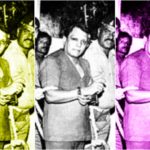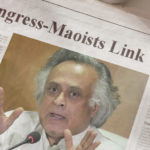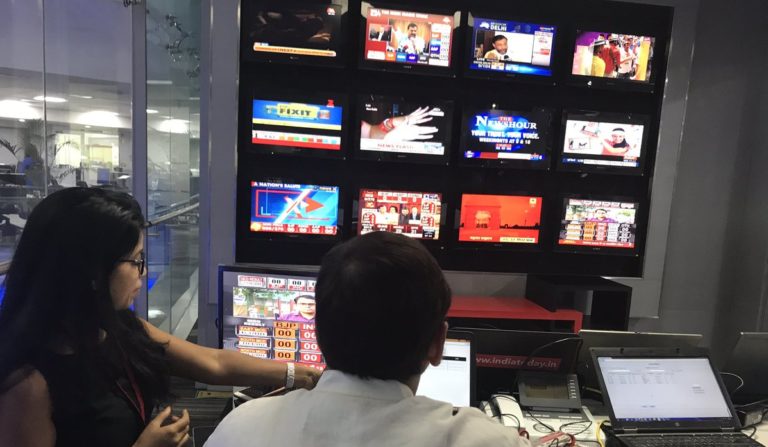The famous Mexican poet and diplomat Octavio Paz Lozano who had also been named Mexico’s ambassador to India in 1962 had once remarked, “When hypocrisy is a character trait, it also affects one’s thinking, because it consists of the negation of all the aspects of reality that one finds disagreeable, irrational or repugnant.” His observance stands completely correct if you deeply analyze the deep-seated sorry state of affairs in the Indian English Mainstream Media, the arcane agenda it loves to air openly and the hypocrisy that it loves to wear brazenly on its sleeves in the process. Hypocrisy has been the hallmark of the Indian English Media. The one thing that they can’t stop doing is to cant continuously.
The English Media have been preaching since long to beef up the representation of SC/ST judges in the Supreme Court. Their hearts bleed to see a minuscule representation of SC/ST judges in the apex Court of the Country. They have been giving these sanctimonious sermons to the Supreme Court for quite long, despite the fact that the Supreme Court has declined reservation in higher judiciary. This sermons-delivery process has regained its momentum once again after the Supreme Court’s verdict on the misuse of SC/ST Act.
From time to time, some Indian Presidents too have raised this issue of underrepresentation of SC/ST judges in the Supreme Court. For example, the former President K.R Narayanan had gone on to offer an unsolicited suggestion to appoint Dalit judges in the Supreme Court that had strained the President-Judiciary relationship to a certain extent. Last year, the newly elected President Ramnath Kovind has also aired a similar view of underrepresentation of OBC/ST/SC Judges in the Supreme Court. President K.R Narayanan in his note to the Justice Ministry had gone on to officially record his suggestion as:
I would like to record my views that while recommending the appointment of Supreme Court judges, it would be consonant with constitutional principles and the nation’s social objectives if persons belonging to weaker sections of society like SCs and STs, who comprise 25 percent of the population, and women are given due consideration. Eligible persons from these categories are available and their underrepresentation or non-representation would not be justifiable.
To this, the then Chief Justice of India Adarsh Sein Anand had responded that “All eligible candidates, including those belonging to the Scheduled Castes and Tribes, are considered by us while recommending names for appointment as Supreme Court judges. Our Constitution envisages that merit alone is the criterion for all appointments to the Supreme Court and High Courts. And we are scrupulously adhering to these provisions. An unfilled vacancy may not cause as much harm as a wrongly filled vacancy.”
In this article, I do not intent to discuss whether merit should be the sole criterion for the selection in the higher judiciary or the reservation could be considered there also. That is not the purpose of this article at all. The whole purpose of this article is to expose the blatant hypocrisy of the Indian English Media on this issue that continuously claims itself to be Dalit sympathizers and the staunch advocate of Dalit Rights. I have quoted the two former Presidents of India on this issue to show that they have every right to voice their opinions, but the same rights do not extend to Indian English Media for their moral murkiness and the malaise that is deep-seated in them. Let me take you to the hypocritical zoo of Indian English Media through its double-standards Safari vehicle.
According to a year old Aljazeera’s report by an investigative journalist Sudipto Mondal, he says, he could find only 8 Dalit journalists in Indian English Media and only two of them preferred revealing their identities. By the time, he had been writing that report only 4 of them were still in journalism.
This report further claims that in 1978, the American Society of Newspaper Editors (ASNE) passed a historic resolution calling for greater inclusion of minorities in American newsrooms and since then, the ASNE maintains a strict audit of the diversity ratios and provides support and training assistance to aspiring journalists from oppressed communities. This has tremendously improved the situation. In contrast, Indian Media just engage in a hypocritical debate of preaching others on what they themselves have been blatantly snubbing.
Commenting on the negligible presence of Dalits in the Indian Media, an opinion piece published in ‘The Hindu’ starts with, ‘There were almost none in 1992, and there are almost none today: Dalits in the newsrooms of India’s Media organizations’.
There is a popular story that around two decades ago, a veteran journalist named B.N Uniyal was once requested by a foreign correspondent to help him to get in touch with a Dalit journalist as he had to speak to one on a squabble between BSP leaders and media persons. The story is that he couldn’t find a single Dalit journalist in the Country despite his tremendous efforts. This led him to pen a story titled ‘In Search of a Dalit Journalists’ published in ‘The Pioneer’ on November 16, 1996.
In 2013, senior journalist Ajay Ashraf, in an investigative report for ‘The Hoot’ could find and identify only 20 Dalit journalists in the Indian Mainstream English Media. Remember, only 20 Dalit journalists after the passage of 22 years of B.N Uniyal’s experience of not finding a single Dalit Journalist in 1996. By what moral authority these hypocrites conduct debates and pen opinion pieces about the underrepresentation of Dalit judges in the Supreme Court?
As the famous saying goes, one should not throw stones at other’s houses whose house itself is made of glass, suits best for the Indian English Media running such debates and giving sanctimonious sermons to others. The solution must be found but in the process, hypocrisy must not prevail.
Read More:
Radio remains as relevant as ever even in spite of an imminent threat from other mediums?
Dear Rajdeep, please practice what you preached in your Pune lecture



